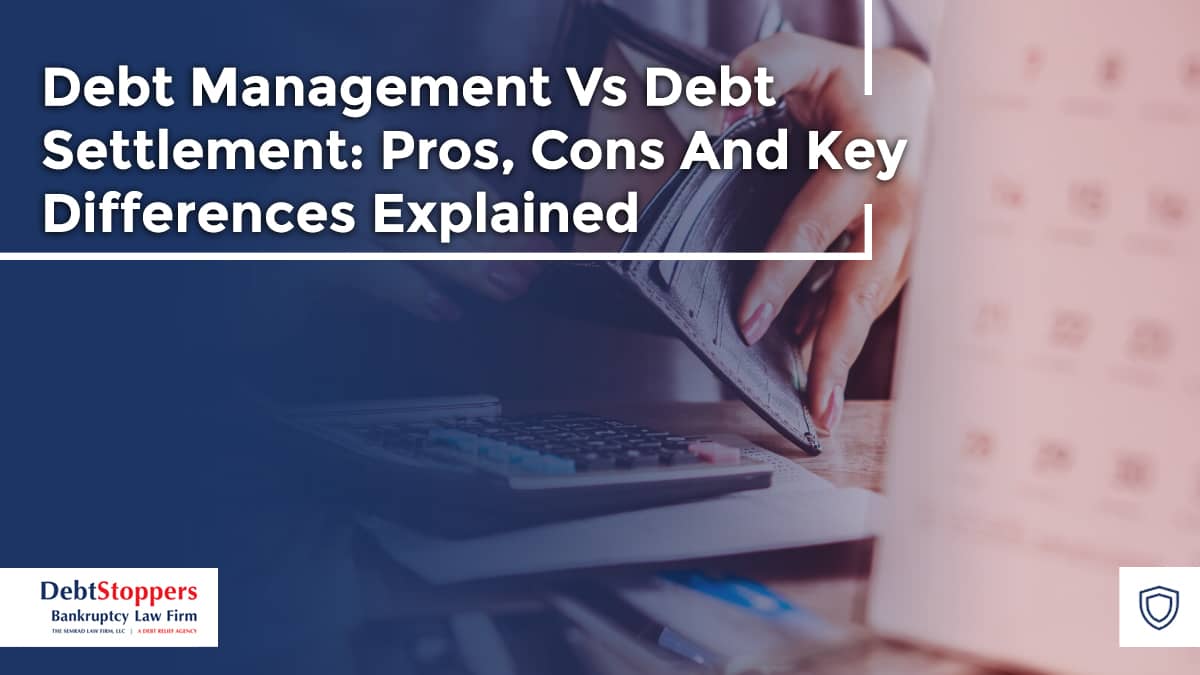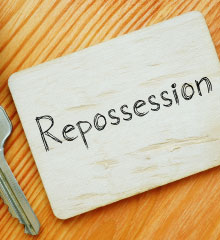Debt Management Vs Debt Settlement: Pros, Cons And Key Differences Explained

Many people who are overwhelmed by debt are curious about the pros and cons of debt management vs debt settlement. Both options can offer some measure of debt relief, but each has unique advantages and disadvantages.
What is the difference between debt management vs debt settlement?
The goal of debt settlement is to negotiate settlements with your creditors that are significantly less than your total debt. This approach usually involves a company negotiating on your behalf with your creditors. You then stop making payments to creditors and instead save that money in a dedicated account. Once you have a sufficient amount saved, the debt settlement company will then attempt to settle your debts by offering lump sum payments that are 30% to 50% (sometimes more) lower than your current balance.
Debt settlement programs usually take between two and four years to complete; however, the timeline depends on how much you owe and how quickly you can save money to make settlement offers. Depending on the amount of debt you have, you may be able to start making offers within a few months. For larger amounts of debt, it may take you longer to save enough.
During the time you stop making payments to your creditors, your credit score will be further damaged, and you are at a greater risk for increased collection efforts and lawsuits.
It’s important to remember that your creditors are not obligated to entertain or accept a debt settlement offer. However, many creditors would rather get something than nothing and are open to negotiating with you.
Debt management, on the other hand, typically means a qualified credit counselor creates a budget on your behalf. You then make one payment to the agency, which then distributes the payments to your creditors. The goal is to simplify your accounts and help you pay off your debt earlier and with less interest.
Debt management can take longer but is less risky. Debt management should help your credit score improve as you make on-time payments consistently and pay down your debt.

How does a debt management plan reduce payments and interest?
If you are considering a debt management plan to reduce your credit card interest rates and lower your monthly payments, here are some things you should keep in mind regarding the pros and cons of the debt management plan.
With a debt management plan, you no longer need to worry about making multiple payments each month. Instead, you will only make one payment to your credit counseling agency. The credit counseling agency will then make the payments to the creditors on your behalf. This is especially helpful if you have numerous accounts or struggle to keep track of due dates.
As part of your debt management plan, your credit counselor will likely try to negotiate lower interest rates on your behalf. When it comes to credit card debt and other unsecured loans, high interest rates can drastically increase your monthly payments.
Luckily, the reverse is true, too. Lower interest rates can mean lower monthly payments. With negotiated terms and lower interest rates, most people with a debt management plan pay their debts in a few years.
Can debt settlement provide faster relief than debt management?
Debt settlement can provide faster financial relief by settling debts within 2-4 years, while debt management plans aim for full repayment and can take longer, usually 3-5 years. However, the timeline for both largely depends on the amount of debt you owe.
What are the pros and cons of debt management vs debt settlement?
The primary benefit of debt management is that it helps simplify your payments and helps you successfully pay off your debt. The primary disadvantage is that you will pay your debt in full, and it can take several years.
On the other hand, the benefit of debt settlement is the opportunity to settle your debt for less than you owe. The disadvantage is the risk of further damaging your credit and increasing your risk for collection efforts and lawsuits.
How to decide if a debt management plan is right for your finances?
If you are unsure if a debt management plan is right for your finances, you should carefully consider your long-term ability to pay down your debt. Keep in mind that debt management typically works best for people with a significant amount of unsecured debt who have the ability to make structured payments throughout the duration of the plan.

When should you consider hiring a debt management or debt settlement attorney?
It’s never too early to consult with an attorney. Most debt management and debt settlement attorneys provide free consultations and can help you assess your situation and evaluate your options.
If you are being sued by your creditors or fear you may face legal action, you should contact an attorney immediately. Failing to respond to legal action may result in a default judgement against you.
Which is better for long-term stability: Debt management vs debt settlement?
Both debt management and debt settlement can help you address your debt and ultimately improve your long-term stability. However, conventional wisdom says that debt management plans are better for long-term stability because they can help you preserve your credit score while also paying off your debt.





